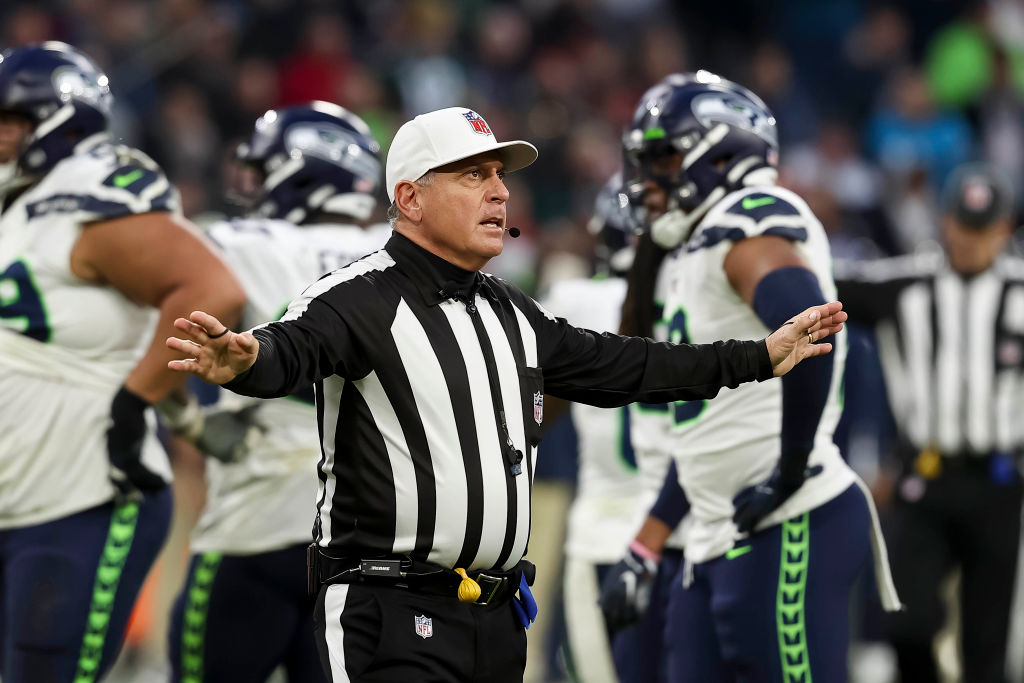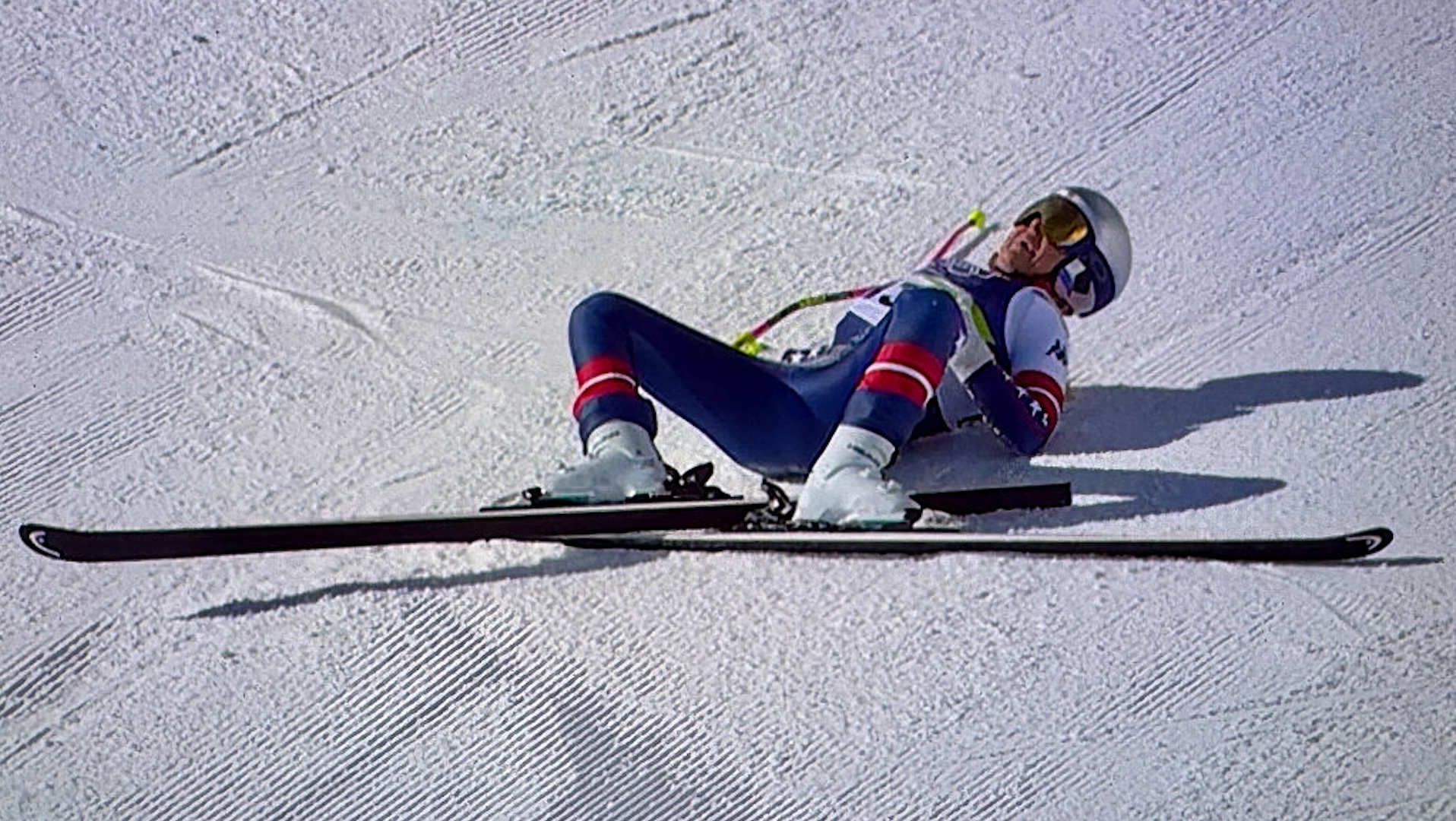The San Francisco 49ers crushed the Arizona Cardinals in Mexico City on Monday night, in the last of the NFL's five international games this season. But uninitiated viewers, or those only half paying attention, could be forgiven if they took several minutes or longer to realize that the action was happening in neither Glendale nor Santa Clara. The difference in the game's production was nearly imperceptible compared to ESPN's other Monday Night Football broadcasts this year. So standardized is the NFL TV product that it can easily be picked up, flown across international borders, and set down unchanged in a new stadium. (This is a selling point for executives.) And nowhere was the uniformity more apparent than when the officials turned on their microphones to announce a penalty call. In Estadio Azteca, as in Munich, Germany, the previous week, the flags were explained not in the first language of the fans, but in English.
The language carryover when pop culture travels abroad is fairly common—in Japanese pro wrestling, for example, you'll hear the referee count one-two-three and not ichi-ni-san. But the incongruity of English rule clarifications piped through perhaps the most iconic stadium in the Spanish-speaking world was striking enough to make me wonder about the purpose those microphones serve in the first place.
It's inconceivable today, but for the first half of the National Football League's existence, fans had no idea what a referee's voice sounded like. Even in the first few decades of football on television, the NFL didn't yet deploy the technology that could communicate a penalty call to a large audience with something more sophisticated than a few hand signals. Explaining a flag, then, was a simple, unadorned affair that required an announcer to fill in the blanks.
But by the end of the 1970s, the NFL introduced wireless microphones for its zebras, which, in the league's own words, "added credibility to on-field rulings, increased transparency on rulings for fans and the media, and reinforced the integrity of the game." Concrete donuts around the country echoed on Sunday afternoons with the authoritative words of the men tasked with policing the game.
The introduction of these microphones didn't come without hiccups. A Cincinnati Post article from 1976, headlined "Another 'Watergate': referees get 'bugged,'" quoted a blooper relayed by Nick Skorich, a former coach who worked with officials in the league office, from when the mikes were only connected to the press box and the TV booth and not over the stadium PA.
“They were playing the National Anthem, and the referee, forgetting his mike was on, began singing the Star Spangled Banner in the most off-key voice you’ve ever heard. We had to call down on a field phone to tell him to stop. One thing we know for sure, he can't sing."
Skorich added in a Gannett story, "Occasionally, we pick up the sound of the players, and it's not the best Irish language." It was also an occasional struggle, he said, to compete with other signals in certain cities.
"We've had problems in areas like Miami, where there's a lot of short-wave radios. We had the official turn the mike on once in Miami, and you heard someone say they needed a cab at 29th Street."
Some balked at this new fan-forward element in football. ("Have referees become amateur entertainers who enjoy hearing their voices on the public address system, and soon will be singing the penalties into the microphone?" asked columnist Rick Woodson). But once the kinks were ironed out, it was clear to almost all that the benefits outweighed the occasional embarrassments. The official's explanation could serve as a light of information in a dark whirlpool of violent competition, educating fans and stopping controversies in their tracks.
"I had a game in New Orleans a few weeks ago where a punt was blocked by the kicking team, which picked up the ball and advanced it for a first down," referee Gordon McCarter said in 1977. "It was the visiting team, and the fans were booing. I explained that a blocked punt which remains behind the line of scrimmage may be advanced by the kicking team for a first down. And the booing subsided."
And, of course, without the wireless mic, we'd never know that he was givin' him the business down there.
I can't claim that the use of English over Spanish in Azteca actually created a crisis of communication for those in attendance. But as the league continues to reach across the globe, I would still like them to make a small tweak and adapt their penalty calls to wherever they are, either by using bilingual refs or giving an interpreter access to their microphone system, in the spirit of both making these games feel like a true product of their surroundings and allowing the most unfamiliar observers to better comprehend the game.
They won't do this. One of the NFL's strengths, as a money-making enterprise, is its consistency. Every game is supposed to look like every other game; if Jags–Colts gets the same pomp as Chiefs-Bills, you can pretend it deserves it. There's no compelling reason to mess with that formula, to call viewers' attention to the fact that they're watching anything other than the usual Official Football Commodity at its regularly scheduled hour.
But the use of English, in this context, can't help but underscore one of the biggest roadblocks to the live NFL experience—the unshakeable sense that the game is being played for the cameras, not the fans in attendance. The live crowd has become almost irrelevant to the proceedings. Put an NFL game anywhere in the world, the league has proven, and it can look and feel exactly the same. Tweaking the language doesn't change that fact, but it would be a tiny, tiny concession to the reality that these games are being played somewhere in a physical location, with its own culture and history and language and fans, and not just on a screen in your living room.






